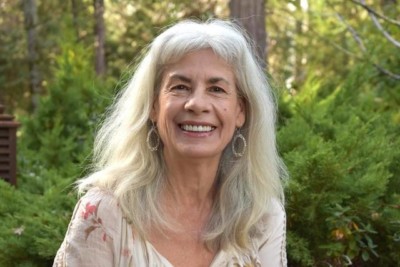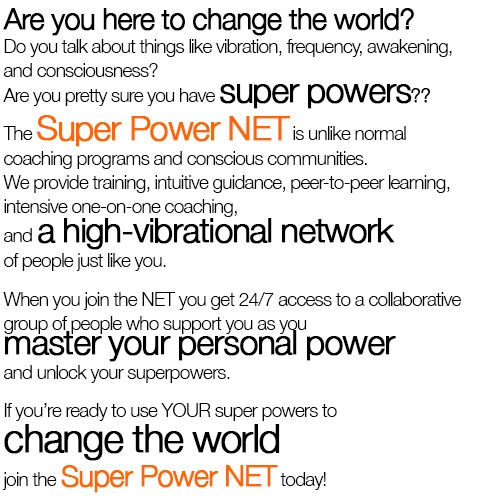
Hi, everybody, welcome to Your SuperPowered Mind. I’m your host, Kristin Maxwell, and in this show we explore the process of transformation and give you the tools and strategies you can use to transform your own life.
Today we are going to be talking to Rita Rivera about how to improve your posture to strengthen self-esteem. Rita Rivera is a former professional dancer, choreographer and studio owner whose lifelong dance training and passion for the healing arts has been the foundation for developing classes that use movement and awareness to facilitate insight, transformation and integration of the body, mind and spirit. Rita offers restorative movement and dance classes and workshops along with Alexander Technique and Melt Method classes. She is a posture coach and works with people to build awareness around unconscious patterns that directly contribute to chronic stress, discomfort and pain. Rita, welcome to Your SuperPowered Mind.
Thank you so much, I’m really happy to be here.

With the mastery of the mind I feel that I blossomed even more and I was present in a way that was really effective for my students and also allowed me to blossom.
We’re excited to talk to you. I’m very curious about this link between our bodies and what we’re doing in our heads. My first question is always, what superpower did you uncover as a result of mastering your mind?
You know, I would say that my super power is being a teacher. With the mastery of the mind I feel that I blossomed even more and I was present in a way that was really effective for my students and also allowed me to blossom.
Okay, so what do you mean? How has that changed as you showed up as a teacher and how you are present?
I would say that there are many different pieces that have to come together for this mind mastery and everyone’s journey is a little bit different. I think mine really started as a young dancer because what you learn, especially if you’re interested and you fall in love with dance, which is what I did, that you learn about discipline. If you’re interested in becoming a professional dancer you are in class every day, maybe not Sunday, but mostly every day. You’re driven, and it’s not something that you are dreading, but you want to go, so it builds a sense of discipline. I think that discipline, in terms of mastery of your mind, that discipline is a component. So, I learned that at a young age.
The other important factor in terms of this mastery of your mind is the work that I’ve done in the Shamanic world. I’ve traveled to Peru several times working with the Quechua shaman and that brings in another component of working with mind. It works with your spirit body, it works with your luminous field, and it works with your blueprint.
So, I think for me, I always knew I had a gift for teaching. I started teaching dance at a young age, and I enjoy teaching. I found that in this journey of unfoldment for myself, and working for this mind mastery, that my ability to teach became more articulate, and it wasn’t based on ego or unconscious patterns, but it allowed me to be more present, in present time. If you can show up for your students being able to hold that sense of presence then I think that you can be an excellent teacher.
Yes, there’s so much good in everything that you said right there. I don’t want to go too far off the side, but one of the factors that I’ve resisted for a long time about this idea of mastering your mind, of getting out of anxiety and stress, is that it takes discipline. I didn’t like that, this idea that I was undisciplined in the thoughts that I was choosing and how I was choosing to show up. I felt powerless. So, it’s a very interesting process, so thank you for calling that out.
Yes.
I’m really curious, what one of the things that you talk about in your work is that our posture reflects our life. Tell me a little bit more about that concept.

When people do go through surgeries or they have injuries, oftentimes the body will take on some sort of stress from that and, if you don’t intercept that stress, you’re going to set up a trajectory that your body is going to go in a certain way.
Yes. So, let’s just take a few examples. One example would be a few years ago I worked with a young girl. I got a call from her parents. She was around 12 and she had to have brain surgery. At this point, I don’t remember if it was two or three surgeries, but they noticed that she was constantly dropped forward after her surgeries. I guess they heard about the Alexander Technique, they heard about me and they called and they brought her in. The Alexander Technique is really very gentle and it’s non-manipulative. It really is about building awareness of how you use yourself. I did several sessions with her. Sometimes it’s hard to know exactly what they’re experiencing on the outside, but her mom came in one day and she said that she was watching her daughter across the room and she was a little bit hunched forward. All of a sudden she started to straighten her spine, so she could see that the work that we were doing really impacted her on an unconscious level and we were starting to repattern after her surgery.
When people do go through surgeries or they have injuries, oftentimes the body will take on some sort of stress from that and, if you don’t intercept that stress, you’re going to set up a trajectory that your body is going to go in a certain way. The Alexander Technique really brings awareness to your posture and to your use. Like right now, we’re sitting at our desks. How are we patterned in our sitting and are we collapsed? Is the head forward? Certainly, people who work in front of a computer all day or all night. We’re holding our head down. We’re constantly setting up these trajectories in the body that are moving us away from a balanced posture. In that imbalance, we’re creating oftentimes, patterns. It’s setting us up for pain and discomfort.
Yes, I can see that. We’re going to have to go to a break right now, but I’m curious about how people go about intercepting the stress, so don’t answer that now, and how that impacts the posture and issues around strengthening self-esteem. But, before we go to break, if people want to learn more about the work that you do, where can they find you?
My website is my name, ritarivera.com and I also have a new program that’s out which is a 28 day posture program called Your Brilliant Back. So, you can either go to my website, ritarivera.com or yourbrilliantback.com.
Perfect. For some reason, at least on my Zoom recording, it cut out. It’s yourbrilliantback.com.
Yes.
Great. We’ll be back in just a moment.
To listen to the entire show click on the player above or go to the SuperPower Up! podcast on iTunes.
Podcast: Play in new window


